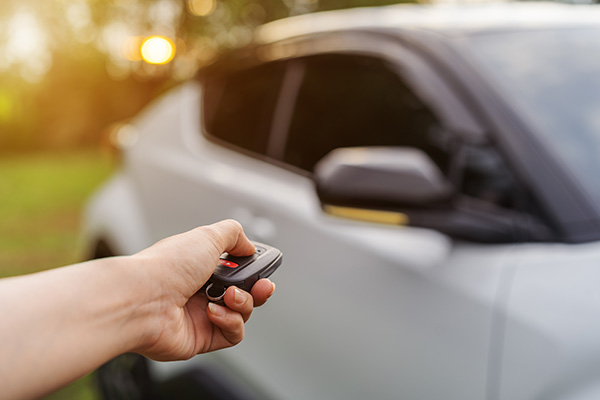
Getting a new car key used to be simple. A locksmith could cut a blank to match your original, and you were back on the road. But today’s vehicles are equipped with electronic systems that require more than just a physical copy. If you’ve had a new key cut and found that it doesn’t work, it’s likely because the key still needs to be programmed.
Modern vehicles rely on transponder technology and electronic communication between the key and the car. Without proper programming, your vehicle may not recognize the new key, leaving you stuck with a blank that fits in the ignition but can’t start the engine.
How Modern Car Keys Work
Most cars built since the early 2000s include an anti-theft system that requires electronic verification from the key. These keys are equipped with a small chip, called a transponder, that sends a unique signal to the vehicle's immobilizer system. If the signal matches what the system expects, the car starts. If not, the engine won’t turn over or may shut off after a few seconds.
So, while your new key might be cut perfectly to match the original, it still lacks the coded signal that the vehicle needs to authorize starting. Programming links that new key’s chip to your car’s system so it becomes a trusted, functional part of your security network.
Signs That a New Key Needs Programming
Here are a few signs your new key hasn’t been programmed properly:
- The key turns in the ignition, but the engine doesn’t start.
- A security or key icon flashes on the dashboard.
- The car starts briefly and then dies.
- Remote lock or unlock functions don’t work (for keys with buttons).
Even keys that start the vehicle might not operate the door locks or trunk release until programmed correctly.
Types of Car Keys That Require Programming
Many key types require programming beyond just cutting:
- Transponder keys: These include a chip and are among the most common keys on the road today.
- Remote keys: Often have a built-in fob that controls lock/unlock and sometimes push-to-start.
- Smart keys: These are proximity-based and work with push-button ignition systems.
- Flip keys: A combination of a mechanical blade and an electronic fob.
Each of these needs to be programmed to match your vehicle’s onboard system. This typically involves a specialized scan tool or software connected to your vehicle’s computer.
Why Cutting and Programming Are Separate Steps
Many people assume that once the key is cut, it should work like the original. However, the cutting process only replicates the physical shape of the key, allowing it to turn in locks or the ignition. Programming, on the other hand, is the digital handshake between your vehicle and the key’s electronics.
Some locksmiths or hardware stores can cut the key, but they may not have the tools or training to perform programming, especially for newer or more advanced key systems. That’s why it’s often best to have the entire process done at an automotive service center that understands both sides of the equation.
Can I Program a Car Key Myself
Some vehicles allow for basic key programming if you have at least one working key. However, most newer cars require advanced equipment that only professional service centers have access to. If all keys are lost, programming requires access to the car’s immobilizer codes, which adds another layer of complexity.
Attempting DIY programming with online tools or unverified third-party services can lead to errors or even lock you out of your vehicle’s system. It’s always safest to trust professionals with experience in modern automotive electronics.
What Happens If I Don’t Program the Key
If your key isn’t programmed, you may be able to unlock the doors manually, but the engine won’t start. In some cases, repeated attempts to start the vehicle with an unprogrammed key can trigger anti-theft measures, such as disabling the ignition or flashing security alerts.
This can create added frustration, especially if you’re trying to fix the issue quickly. Programming ensures your new key is fully functional and avoids these unnecessary delays.
Portland Automotive – Professional Key Programming in Portland, CT
At Portland Automotive, we help drivers in Portland, CT, avoid the confusion and downtime that comes with unprogrammed keys. Whether you’ve lost your original or just need a backup, we’ll handle both the cutting and programming to get you back on the road quickly and securely.
If you need a replacement key, let our team make sure it’s fully set up and ready to use.